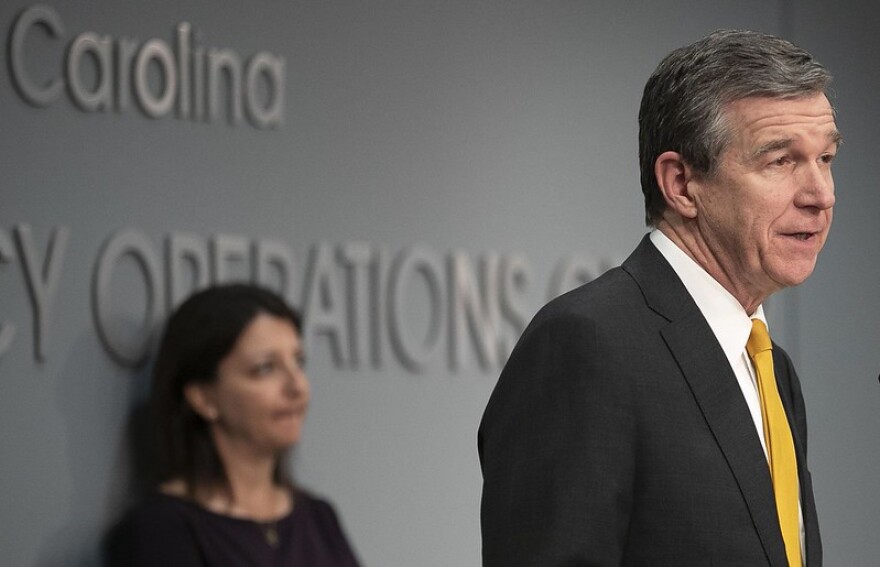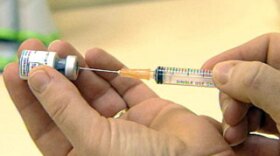Gov. Roy Cooper is letting North Carolina restaurants, barber shops and salons welcome patrons inside starting this holiday weekend, reporting on Wednesday that the state's COVID-19 trends remain largely stable.
But bars, gyms and other indoor entertainment venues will remain closed five more weeks.
The Democratic governor announced a new launching the second phase of easing business and assembly restrictions after nonessential businesses and dine-in restaurant service were initially shuttered in March. The original closures were meant to curb the spreading coronavirus and had put hundreds of thousands of people out of work.
Two weeks ago, Cooper allowed more businesses to open, provided they limit entry largely to 50% of their fire code capacity. Cooper said Wednesday he now feels comfortable about the virus data to lift the stay-at-home order and extend partial openings starting Friday afternoon for dine-in eating at restaurants and for personal care services such as barbers. Pools also can reopened with reduced numbers of swimmers.
But Cooper said he didn’t feel good enough about the trends to reopen public playgrounds, movie theaters, fitness centers and other venues that he suggested he could do in the second phase when it was first unveiled a month ago. Under the order, they’ll have to remain closed until at least June 26.
Cooper pointed out that the number of COVID-19 cases as a rolling average has continued to increase, although the percentage of tests that are positive have been decreasing but are starting to level out.
“The increases in the number of COVID-19 cases signal a need to take a more modest step forward in phase two than originally envisioned,” Cooper said at a news briefing.
As of Wednesday morning, the state reported more than 20,100 confirmed cases and 700 deaths, according to Department of Health and Human Services data. More than 277,600 tests have been completed, an increase of 12,600 compared to Tuesday.
For most people, the coronavirus causes mild or moderate symptoms, and the vast majority survive. But for others, especially older adults and those with existing health problems, it can cause pneumonia or death.
For weeks, restaurants have been allowed to only offer takeout and delivery, while the personal care businesses were shut down fully. The restaurants, salons and other soon-to-be-reopened businesses will be subject to social distancing and cleaning requirements. Employees in some industries will have to wear face coverings.
While mass gatherings at outdoor venues will now be capped at 25 people, it remains at 10 people when people gather indoors. These restrictions don't apply to churches — a federal judge struck down Cooper's previous limits on indoor worship services last weekend. But congregations are urged to comply with social distancing rules.
Cooper has faced pressure from conservative Christian leaders, who sued to block the restrictions on religious services. Conservative activists demonstrating weekly near the Executive Mansion and Republican politicians have been unhappy with the slow pace of reopening.
“I’m glad the governor has responded to the calls of senators, small business owners, and unemployed workers to let them get back to work," Senate leader Phil Berger said in a news release. He had asked Cooper to give counties power to reopen restaurants and salons. He considers the testing and case data worse than it was last week.
Cooper and Health and Human Services Secretary Mandy Cohen have said they were evaluating the science and data before making any decisions. Cohen said Wednesday the state is still meeting the White House guidance offered to move to a second phase of reopening.
“What we have done successfully is to flatten the curve,” Cohen said. “And that's what we want to continue to do."









